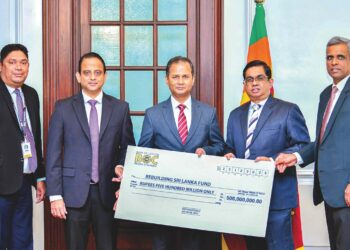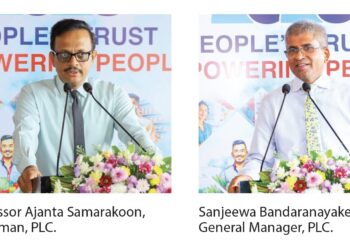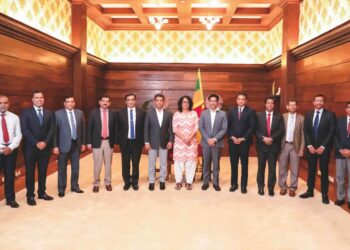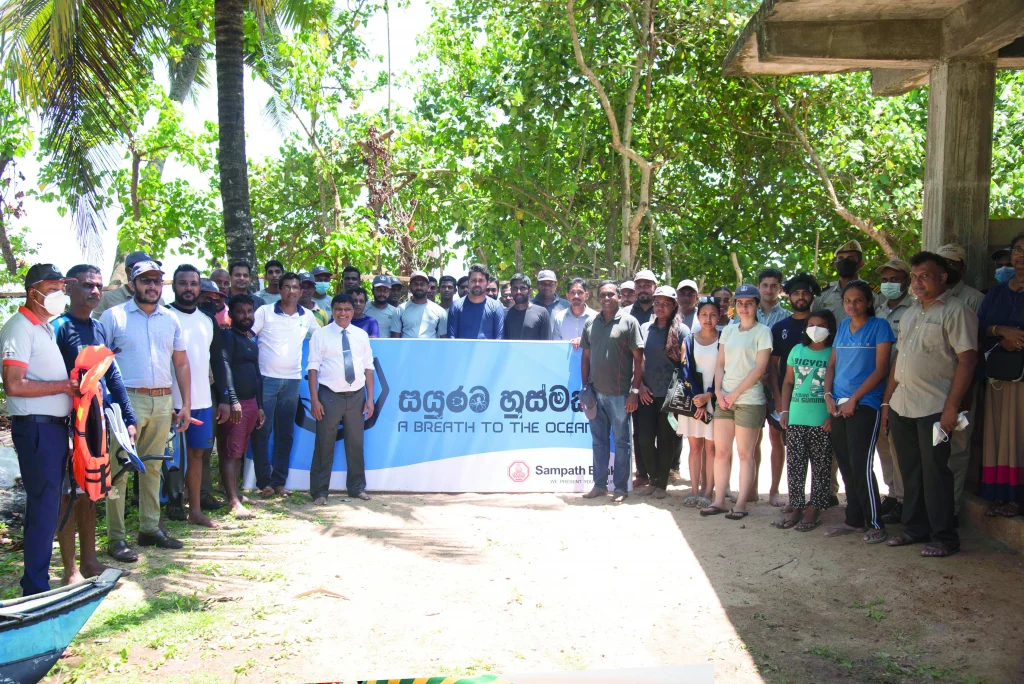
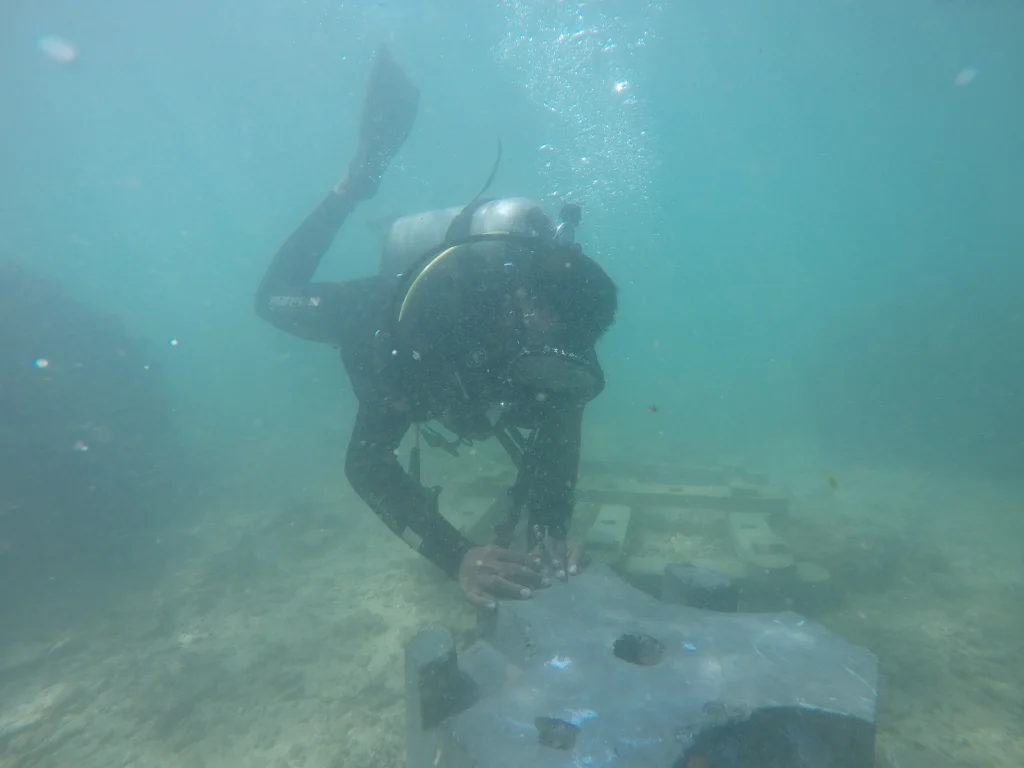
Sampath Bank has launched the first phase of the coral re- planting program to protect marine resources in the waters off the coast of Mirissa. Calling this initiative ‘A breath to the ocean,’ the Bank invited other environmentally conscious entities to participate in this program to transplant living corals onto dying corals and thus revive the marine life of Sri Lanka. A land-based component of this corporate responsibility program is a campaign to replant and replenish the mangrove wetlands in the area.
Sampath Bank’s coral restoration project involves underwater coral farming and sending trained scuba divers into the ocean’s depths to transplant the new clusters of coral.
“Being a responsible enter- prise that takes pride in its Sri Lankan roots, Sampath Bank is committed to championing environmental sustainability. Sri Lankans have a tradition of living in harmony with nature. The desire to conserve natural re- sources is ingrained in our culture. These days, there’s a heightened awareness of a crisis in the natural world,” said Nanda Fernando, Managing Director, Sampath Bank. “Our coral reefs and mangrove wet- lands are powerful tourist magnets. They are environmental assets under threat from global warming. As an island nation that depends on tourism, we cannot afford to let this happen. Livelihoods are at stake. More Sri Lankans are starting to grasp this, a net positive.”
“As the world struggles with environmental issues caused by the despoilation of natural re- sources, business enterprises have partnered with international organizations to prevent or reverse the effects of ecological disasters. Sampath Bank is one such enterprise, having made environmental sustainability part of its business plans. Our coral replanting program for the protection of marine life is part of our initiative, and our ‘breathing life into the oceans’ campaign is an example of that,” said Lalith Weragoda, Group Chief Human Resource Officer, Sampath Bank. “We won’t hesitate to roll up our sleeves or, in this case, get our feet wet – to reverse the effects of destructive practices and to restore Sri Lanka’s undersea environment to its pristine state.”


